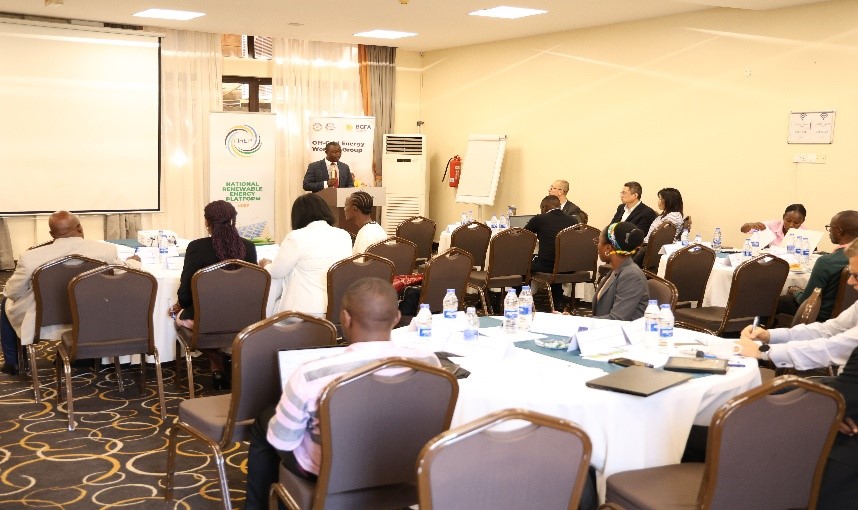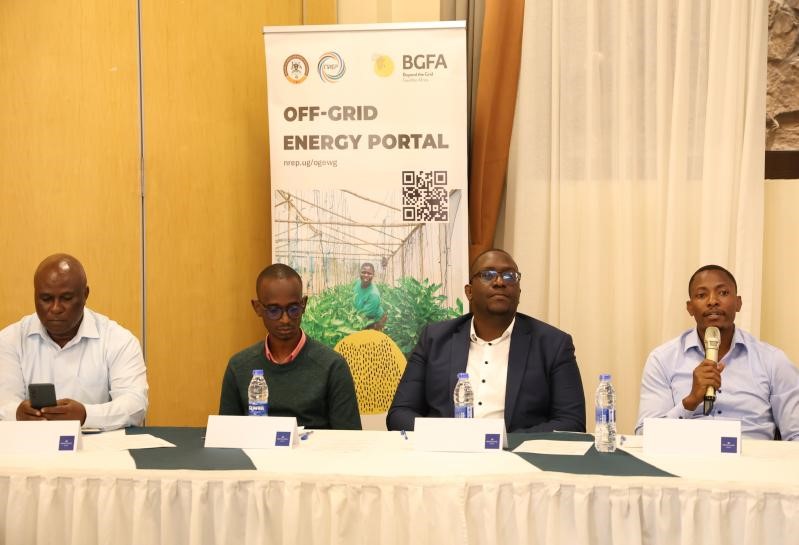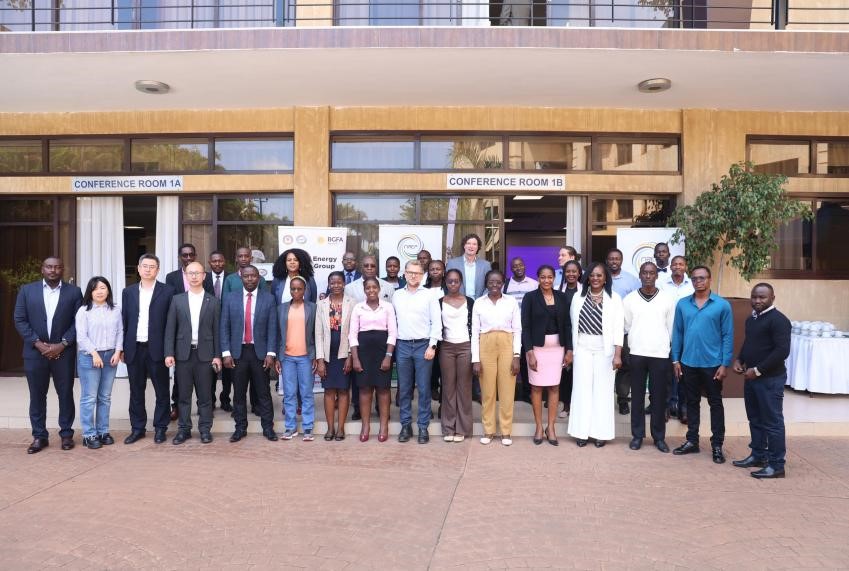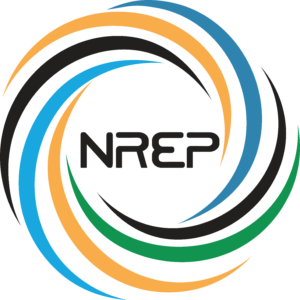On April 3, 2025, the National Renewable Energy Platform (NREP), in partnership with the Ministry of Energy and Mineral Development (MEMD) and funding from Beyond the Grid Fund for Africa (BGFA), convened the 2nd National Off-grid Energy Dialogue in Kampala. This high-level event was organized under the Off-grid Energy Working Group (OGEWG), a central platform established to strengthen coordination, share knowledge, and drive innovation across Uganda’s off-grid energy sub-sector.
The event brought together government, private sector players, and development partners to deliberate on strategies for accelerating off-grid energy access across Uganda. The dialogue aimed to:
- Secure commitment from stakeholders to actively support, implement and follow up on identified actions, fostering accountability.
- Contribute to an enhanced understanding of sector challenges, with prioritized opportunities to address barriers effectively.
- Provide clear pathways for implementing financing mechanisms and securing/proving RBF investments to ensure sustainable growth without market distortion.
- Strengthen collaboration among government, development partners, and the private sector to amplify the societal benefits of off-grid energy solutions.
- Launch the Off-grid Energy Portal.

Key Highlights & Observations
The dialogue revolved around the central themes of sharing lessons, showcasing innovations, exploring collaborative approaches, and sustainability within Uganda’s off-grid energy sector.
Content was delivered by way of presentations and a panel session consisting of the representatives of the subcommittees.
The key presentations included:
- Outlook and functionality of the Off-grid Energy Portal and Website by Mr. Derrick L. Mayiku.
- The Sun Scale project evaluation findings by Ayuda en Accion
- The UNEP, ACCT project on solar powered irrigation systems market assessment by UNEP.
- The mini-grid site selection tool by Sunbird AI.
Whereas, the panel sessions featured experts from the Off-grid Energy Working Group (OGEWG) subcommittees, including Mini-grids, Productive Use of Energy (PUE), Results based Financing (RBF), and Bioenergy and Clean Cooking.
The dialogue opened with a call to action using data is the key to unlocking investment. All stakeholders were urged to consolidate efforts around clean, accurate, and accessible data to attract financing for energy projects.
Collaboration was a recurring theme, with Sweden’s Embassy emphasizing the need to eliminate siloed working and to collectively pursue climate resilience, poverty reduction, and gender equality. Sweden’s new bilateral strategy (2025 – 2029) reaffirmed support for fossil-free energy access and energy efficiency, aligning with Uganda’s National Electrification Strategy.
The Ministry of Energy and Mineral development reiterated its commitment through the initiatives by the dedicated Mini grids Unit within the Renewable Energy Department at the Ministry, emphasizing new off-grid strategies, productive use of energy programs, and the enforcement of standards for off-grid equipment and installations.
Dr. Paul Nduhuura, Head of Research & Capacity Building pointed out the transformative potential of Productive Use of Energy (PUE), a powerful concept that redefines energy not just as a utility, but as an engine for economic growth.
Eng. Elizabeth Kaijuka, the Ag. Assistant Commissioner, Renewable Energy Department, MEMD emphasized that the Ministry of Energy has reaffirmed its commitment to providing regulatory and policy support, highlighting progress in the development of Uganda’s Off-grid Strategy and the Productive Use of Energy Plan both for the on grid and off grid solutions
She also underscored regulatory frameworks, e-waste management plans, and technical standards for mini-grids and standalone systems were all underscored as critical enablers for scaling access.
The Ministry highlighted partnerships with UECCC, the World Bank, and GOGLA to implement results-based financing (RBF) initiatives aimed at attracting private investment and scaling sustainable off-grid energy solutions in Uganda.

Key Challenges & Lessons Learned
Despite the notable progress, key challenges persist, some of which were highlighted such as fragmented nature of energy data management, weak regulatory enforcement, inconsistent fiscal policies, limited local maintenance capacity, and growing concerns around e-waste management.
The event underscored the critical need for open minded approaches to data control structures across government, private sector, and development circles.
Additionally, e-waste from imported appliances and limited public awareness on sustainable energy use remain pressing issues. Dr. Nicholas Mukisa, the Deputy National Coordinator, NREP, proposed a robust framework that assigns responsibility to suppliers and support local recycling capacity backed by incentives and policy alignment.
The dialogue also emphasized the need for innovative financing models particularly results-based financing (RBF) to incentivize private sector investment and support small energy businesses. Building local capacity and addressing quality control remain vital to long-term sustainability.

Conclusion
The 2nd National Off-grid Energy Dialogue highlighted the power of collaboration as the driving force behind Uganda’s energy transition. Moving ahead, the various OGEWG subcommittees supported by NREP and partners are committed to expanding access to clean and affordable energy through prioritize data-driven planning, strengthen regulatory environments, promote productive use of energy, and scale innovative financing solutions.
The Off-grid Energy Working Group will continue to act as a cornerstone for sector-wide coordination, ensuring no community is left behind in Uganda’s energy transition journey.



